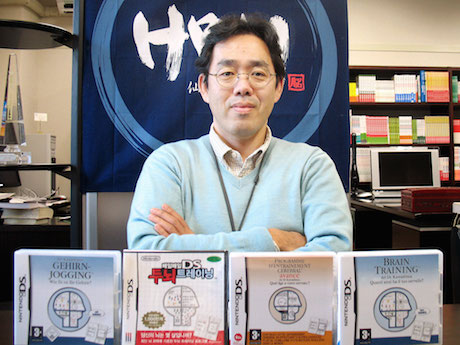Most riders will tell you they are smarter than your average car driver, but there is actually scientific support for this theory.
Riding a motorbike every day can make you smarter and prevent the onset of dementia and Alzheimer’s disease, says Dr Ryuta Kawashima, author of the Nintendo game “Dr Kawashima’s Brain Training”.

The 57-year-old self-professed motorcycle fan conducted a study in 2009 at the University of Tokyo that found riders aged 40-50 had improved levels of cognitive function after riding their bikes daily to work for just two months.
Cognitive function includes processing thoughts, memory and speech.
His team believes the concentration required to operate a motorcycle’s various controls and even survive the daily rush hour increase brain function.
Compare the complexity of the daily commute on a motorcycle to the levels of concentration required (or at least the levels of concentration most commuters use) in an automatic car.
Kawashima says a car is “a comfortable machine which does not activate our brains”.
Dr Kawashima’s study involved riders with an average age of 45 some of whom were regular riders and others who had not ridden in 10 years.
They were required to do eight different courses with a variety of challenges while their brain function was recorded.
It found the right hemisphere of the prefrontal lobe was activated while riding.
Ok, that’s a bit technical. Basically the right temporal lobe is the problem solver and decision maker. It governs motor behaviour and impulse control. It is also used for making judgements, memory, social behaviour and sexual behaviour.
So there you go, riding a bike is exercising a lot of important areas and may even be good for your libido; who knows!
The study found that not only did the participants’ brains get a daily workout, but their memory improved, their spatial reasoning was boosted and the participants claimed their stress levels decreased.
“By using motorcycles more in our life, we can have positive effects on our brains and minds,” Dr Kawashima says.
Dr Kawashima has developed several brain-teaser games that have not only improved the memory of 60% of dementia suffers, but also earned him more than $30m in royalties.
With the number of dementia sufferers expected to treble worldwide from 36 million to 115 million by 2050, according to the World Health Organisation, scientists are increasingly turning to non-drug treatment such as the good doctor’s games.
However, it might be better to encourage more people to ride motorcycles!




